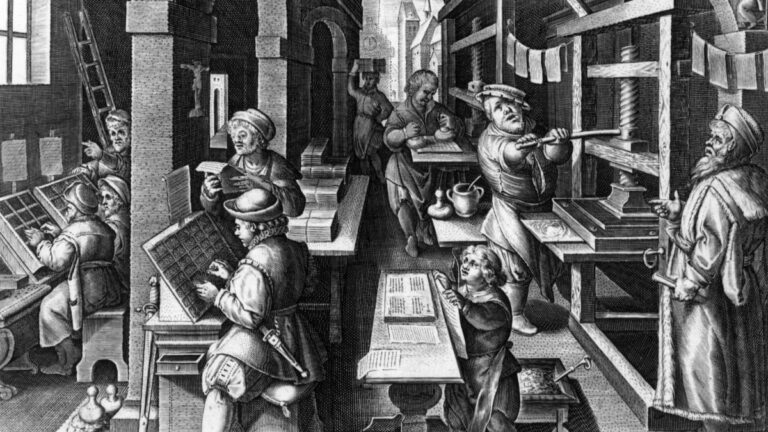
notable
The passage of each year encapsulates with it many memories and emotions. The year 2024 was also marked by many notable and impactful happenings. These notable and impactful events will certainly shed its own repercussions in the human mind in the near future. Here is a short perusal of the 10 most notable and impactful events of the year 2024 which has engulfed the memories and emotions of we, the Indians as well as the whole of the global community.
Five languages granted the status of classical language
The union cabinet of India approved the recognition of five new classical languages: Assamese, Bengali, Marathi, Pali and Prakrit on October 3, 2024. The granting of classical language status to these five languages approves the government of India’s motto of respecting the linguistic diversity of India. Moreover, it will help the scholars of these new classical languages to diversify and usher in new analytical thinking, so far as research related activities of these languages are concerned.
At the same time, these classical languages in particular and all the regional languages of India in general must be able to control the influence and hegemony of the English language so far, its use as a lingua franca of the country. The recognition of these five new classical languages namely- Assamese, Bengali, Marathi, Pali and Prakrit must aid and help in the development of these languages as languages which breaks upon the shackles and boundaries of regional languages and it must enrich the entire world so far as, its rich literature and vocabulary is concerned. In this regard, there must be an effort to translate the rich literary resources of these five classical languages in particular into various other world languages and thereby engulf the literary flavor of these languages in the global forum.
Australia bars Under-16s from using social media
Australia has enacted a legislation, something first of its kind in the world by dint of which it bars children under sixteen years of age from using social media platforms like Tik Tok, Instagram, Facebook, Snapchat, Reddit and X. This move of the Australian government will certainly have far reaching implications so far as use and abuse of social media platforms in the country. The legislation further imposes fines up to Australian Dollar 50 million for the violators of this law. Therefore, such a hefty punishment for the violators of this Australian legislation will make the common masses of the country cautious to a large extent while using social media platforms.
Moreover, this new legislation of Australia will have a huge impact on the thought process so far as, the use as well as the abuse of social media platforms in the country is concerned. At the same time, it is expected that more countries of the world will follow the Australian government’s example of bar of under-16 children of social media in the times to come. In the long run, it may also be concluded that, Australian legislation on social media ban for under-16 aged children will certainly have a positive impact on the mental health and the overall well being of teen aged children in this world.
Lok Sabha Elections, 2024 and Modi 3.0
At the national level, election of Prime Minister Mr. Narendra Modi for the third consecutive term in the Lok Sabha elections has turned out to be the most notable event in the year 2024. Although, the Lok Sabha elections result of 2024 could not provide the 400 plus seats to the NDA yet, in it the BJP has turned out to be the single largest party with 234 Lok Sabha seats. Yes, it is true that this election saw the resurgence of the Indian National Congress (INC) as a recognized opposition party with a victory in 99 seats yet, from the results of Lok Sabha elections 2024 it can rightly be concluded that the hold of BJP and its ideology in most parts of the country is still intact.
What is worth analyzing after NDAs Lok Sabha election victory is how they translate the promises as enunciated in the election manifesto into reality. After the Lok Sabha election’s victory, the NDA government in the country is left with the herculean task of providing food and livelihood to the teeming millions of the country. Moreover, it also remains to be seen as to, how the Modi 3.0 government deals with the global forum so far as diplomacy and international relations of the global countries with India is concerned.
Donald Trump wins US Presidential election
Mr. Donald Trump won the US Presidential election with 277 electoral college votes, surpassing the required 270 electoral college votes on November 6, 2024. In this election Mr. Donald Trump, the Republican candidate defeated Mrs. Kamala Harris the Democratic party’s candidate in one of the most keenly contested US Presidential elections. In the elections Trump won both the electoral college votes and the popular votes. In fact, Trump this year has become only the second Republican to win the popular vote since 1988.
Mr. Donald Trump won the US Presidential election for the second term and he was congratulated by various world leaders on his victory. At the same time, it remains to be seen after Mr. Trumps victory how the world order shapes into during his tenure. Whether, Mr. Trump can control the growing influence of China in the global forum and how the new US President deals with the various war mongering nations of the world remains to be seen. Mr. Donald Trump’s victory too had its own implications in the Indian sub-continent. It remains to be seen how the new US President deals with violence prone countries of Bangladesh and Pakistan of the Indian sub-continent and especially it is significant as to how Mr. Donald shapes his policies with regard to dealing with large number of Indian diasporas staying in the USA.
One Nation One Election
The One Nation One Election bill has been passed in the Lok Sabha with 269 votes being in favor of the bill and 198 votes against passing the motion. The bill at present is under the consideration of the Joint Parliamentary Committee (JPC) which has been constituted under the Chairmanship of former President of India, Mr. Ram Nath Kovind. The One Nation One Election bill aims to hold all the elections of the three-tier system of governance in India namely, Lok Sabha, State Assemblies and the Panchayat and other local bodies at once. Thus, voters of India will be able to vote for Lok Sabha and the State Assemblies at the first phase and in the second phase they would vote for the local bodies like the Panchayats and the Municipalities after 100 days of general elections.
Historically, this system of simultaneous elections in India is not an align concept for the voters of India. As, the years 1951-52, 1962 and 1967 witnessed simultaneous elections in India. This trend was discontinued after the 1967 elections due to the premature dissolution of few state assemblies and Lok Sabha in 1970. At present, there is a huge debate both for and against the conduct of simultaneous elections in the country. At the same time, the utility of the ‘One Nation One Election’ far outweighs its futility. This process of simultaneous elections will certainly help in checking election expenditures in the country and further it will certainly strengthen the continuity of government schemes and policies involving large time frame as there will be less disruptions in its continuity due to little interruption due to One Nation One Election.
Make in India completes 10 years
September 25, 2024 marked the completion of ten years of the ‘Make in India’ initiative initiated by the Narendra Modi led NDA government. The initiative of ‘Make in India’ emphasizes upon making India a manufacturing hub of the world. Since, its inception in 2014, this initiative of government of India has been able to attract investment so far as the manufacturing sector is concerned. The ‘Make in India’ initiative encompasses diverse sectors of the Indian economy. These includes the sectors of semiconductors, space, electric vehicles to name a few in this regard. After the initiation of the scheme, India has launched a start up every hour generating 1.5 million jobs.
At the same time, it is worthwhile pointing out that, skill development among the youths of our country is the key to the success of the ‘Make in India’ initiative. In such a scenario, the present generation of youths must not shy away from the path of skill acquisition. Then only most of our unemployed youths could be involved in a rapid way in the ‘Make in India’ mission. The initiative of ‘Skill India’ coupled with ‘Make in India’ can work wonders in curtailing the rate of unemployment in the country. This will certainly reduce the sense of insecurity and frustration among the Indian youths. In the long run, our Indian economy will embark upon a path where the consumers of the country will certainly be vocal for the local goods and products.
D Gukesh: Youngest Chess World Champion
Indian Grand Master Gukesh Dommaraju has become the youngest Chess World Champion on December 12, 2024. He became the youngest Chess Champion in the world at the age of 18 years. D. Gukesh surpassed Russia’s Garry Kasparov as the youngest who became world champion in 1985 at the age of 22 years 210 days. In the 2024 FIDE World Championship organized by International Chess Federation (FIDE) hosted in Singapore (Equarius Hotel at Resorts World Sentosa), D. Gukesh defeated the 2023 Chess World Champion Ding Liren from China. With this victory Grand Master D. Gukesh won a prize money of 2.5 million Dollars. He is only the second Grand Master from India to win the World Chess Championship.
The earlier winner being Viswanathan Anand who became Chess World Champions four times in the years 2007, 2008, 2010 and 2012. D Gukesh was born in Chennai on 26th May, 2006. His father Rajnikant is an E.N.T. specialist while his mother is a Scientist. D Gukesh took to the game of chess at a tender age of seven and subsequently became the youngest Grand Master of India on 15th January, 2019 at the age of 12 years, 7 months and 17 days. He has also achieved the distinction of being the second youngest Grand Master of the world. After this victory of D Gukesh as world chess champion it remains to be seen how his victory may turn India into a world chess power and how the generations of young Indians emulate his feat.
India becomes men’s ICC T20 World Cup 2024 Champions
Indian cricket team won the ninth edition of the men’s ICC T20 World Cup 2024 which was hosted by the USA and the West Indies from June 1-29, 2024. This is the second time India has won the men’s ICC T20 World Cup. The earlier T20 triumph came for India in the inaugural edition of men’s ICC T20 World Cup in 2007. In the finals of the championship India defeated South Africa in a keenly contested finals by seven runs and the atmosphere at the Kensington Oval in Barbados was just electric. Indian Pacer Jasprit Bumrah was adjudged the player of the tournament while Indian batting sensation Virat Kohli was declared as the player of the match in the finals.
The historic triumph of the men’s Indian Cricket team holds immense significance as with this victory India have once again proved its dominance in the cricketing world. This victory will certainly inspire the new generation of Indian cricketers to repeat the feat in the years to come. The game of cricket is a craze in India and this victory of the men’s cricket team will certainly instigate this craze more in the times to come. This victory too will also inspire the other nations of the world to play and build cricketing infrastructure in their countries and thus, spread the popularity of the game of cricket in a global forum.
Dr. Manmohan Singh: The architect of Indian economic liberalization no more
Former Prime Minister of India Dr Manmohan Singh passed away at the age of 92 in AIIMS Delhi on December 26, 2024. He succumbed to death due to old-age ailment. Born in Punjab of the present-day Pakistan on 26th September, 1932 to Gurmukh Singh and Amrit Kaur, Dr Manmohan Singh served as the Prime Minister of India for two terms from 2004-20214. Dr Manmohan Singh retired from the Rajya Sabha on April, 2024 after a 33 year long service in the House. He also served as the Governor of the Reserve Bank of India from 1982 to 1985 and, as the Deputy Chairman of the Planning Commission from 1985 to 1987.
However, Dr Manmohan Singh will be long remembered as the architect of India’s economic liberalization of the 1990s. He would also be remembered as India’s Finance Minister of the 1990s who initiated the process of economic liberalization at a time when the Indian economy was at doldrums. Being, the Finance Minister of India he led from the front in the revival process of the Indian economy during the 1990s. Although, known as the ‘accidental Prime Minister’ of India but, during his tenure as the Prime Minister many significant Acts were enacted by the Indian Parliament. Some of the Acts enacted during his tenure as Prime Minister includes VAT Act, Right to Education Act, National Rural Employment Guarantee Act, Right to Information Act etc., to name a few in this regard. Dr Manmohan Singh will be long remembered by the generations to come for his simplicity and honesty.
Ratan Naval Tata passes away
Renowned Indian industrialist and leader of the Tata group, Ratan Naval Tata passed away on October 9, 2024 at the age of 86 in Mumbai. Ratan Naval Tata will be remembered as a beacon of patriotism and integrity. He was born to Naval Tata and Sanoo Tata on December 28, 1937 in Mumbai. After his parents separated when he was ten years old, he was raised by his grandmother Navajbai Tata. Ratan Naval Tata took over as the Chairman of the Tata Sons in 1991 at a time when economic liberalization was initiated under the able leadership of Dr Manmohan Singh.
Under Ratan Tata’s leadership, the Tata group expanded globally. He acquired companies like Tetley Tea (UK), the iconic Jaguar Land Rover. But Ratan Tata became a household name for his most ambitious project launched in 2008, the Tata Nano car, the world’s cheapest car. In this way, Ratan Naval Tata made buying car affordable for the Indian middle class. He was also known for his significant contribution to philanthropic causes. He provided funds towards education, rural development and health care. Ratan Naval Tata left for heavenly abode but, he will be long remembered for his befitting social causes and for his contribution as a beacon of industrialization in a country like India.
By: JNANDEEP BORA
Write and Win: Participate in Creative writing Contest & International Essay Contest and win fabulous prizes.


